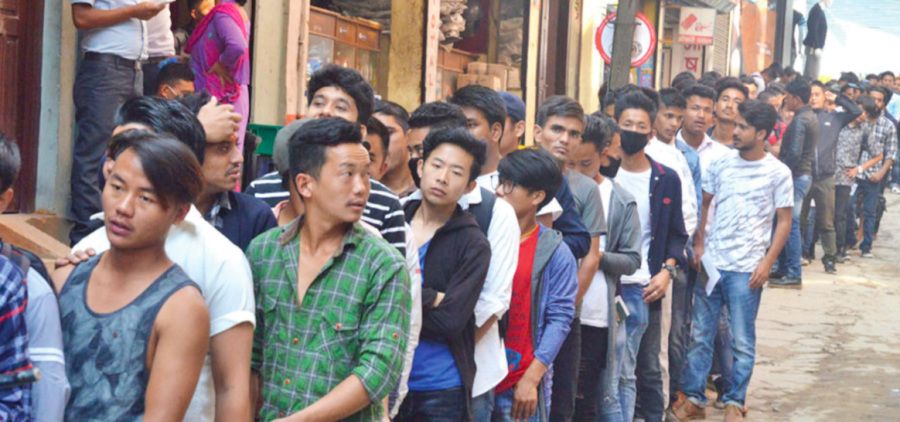National
After a halt in departure to South Korea, now Korean language test looks uncertain too
Both countries have not yet announced dates of Korean language test amidst the Covid-19 tension.
Chandan Kumar Mandal
The Covid-19 pandemic continues to hit Nepal’s labour migration sector as the dates for Korean language test for Korea job aspirants have also been affected.
The dates for Test of Proficiency in Korean (TOPIK), a mandatory Korean language test for Nepali migrant workers aspiring to work in South Korea, have not been announced so far, which is linked to the ongoing global health crisis.
No formal announcement has been made about this year’s test, Baburam Ghimire, a section officer at the Employment Permit System (EPS) Section of the Department of Foreign Employment, told the Post.
“We have not heard anything from the Human Resources Development Service of South Korea regarding the language dates yet,” Ghimire said. “Usually, the notice about the test is out by this time of the year.”
Customarily, the EPS section announces the test in April-May. The test dates are then decided by the EPS Section and the Korean authority.
Since both countries are currently fighting Covid-19, the test dates remain undecided.
All departures to South Korea have been suspended since mid-February at the request of the Korean authorities as the country was in the midst of a fight against Covid-19. Before that, around 100 Nepali youths were leaving for South Korea every week. The first-timers would leave on Saturdays and the returnee migrant workers on Wednesdays.
Nearly 300 youths had completed the procedures to go to South Korea before the crisis, Ghimire told the Post.
The delay in the test means more youths preparing for the test will be affected. Last year, a record number of over 92,000 had applied for South Korean jobs. Only 6,908 among them had passed the language and skill tests to qualify for jobs in South Korea.
Those youths who had qualified for the 2020 job intake have been unable to leave.
“We have filled up the employment forms and submitted them to the Human Resources Development Service of South Korea. Their names have been updated on the roster as well,” Ghimire said. “Candidates have started getting their labour contracts from the employers, but due to the travel restrictions and lockdowns triggered by the Covid-19 pandemic, not a single candidate has been able to leave for South Korea.”
Every year, thousands of Nepali youths apply for the Korean language test with the dream of working in South Korea.
South Korea has emerged as one of the most-preferred labour destinations among aspiring Nepali migrant workers as the country offers better wages and facilities in comparison to other countries, like Malaysia and the Persian Gulf states.




 8.22°C Kathmandu
8.22°C Kathmandu














